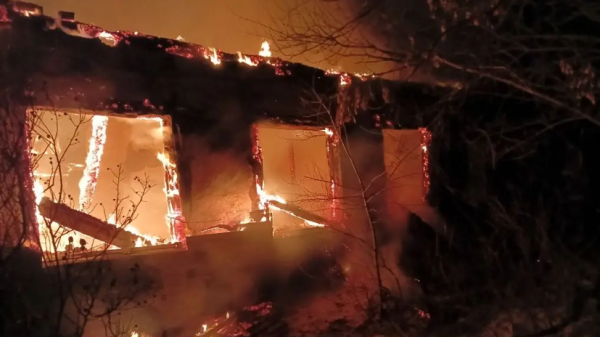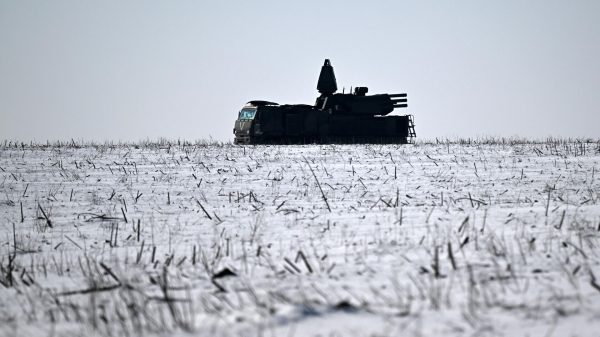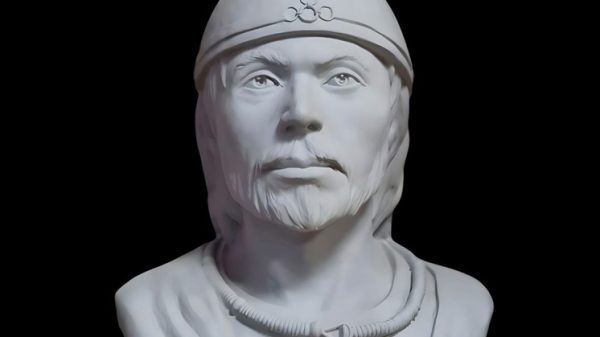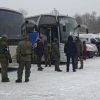 Race Around the World stars Alfie and Owen Photo: BBC
Race Around the World stars Alfie and Owen Photo: BBC
When Alfie and Owen won Race Around the World last night, I I admit that I, a grown man who once wrote reports from war zones, actually cried. The 21-year-olds started the race as the most annoying competitors. Owen looked like a guy on tour who went to South Korea for Wagyu beef and beer, while Alfie made Nurse Ratched look relaxed and at ease, always insisting to Owen that they were at a race and not a party.
But then Alfie revealed he was still dealing with the loss of his mum to breast cancer when he started primary school, and the following week in Thailand's Khao Yai National Park, trainee pilot Owen admitted to depression and broke down on camera. «You're good?» Alfie checked in and you could see how deep their connection was despite the lightness of their chatter. Suddenly I felt sick for them.
And that's the clever trick at the heart of Race Around the World, perhaps the most British of all reality shows. On the surface it's about Brits abroad, usually not in depth, but then around the second episode you realize you've been reading everything wrong and moments of surprise come so often that they no longer seem remarkable. If Hollywood had written the script, you wouldn't believe a word of it.

Launched in 2019 on BBC2, it became an almost instant hit. In late-night viewing alone, the series topped Barb's weekly charts, beating Britain's Got Talent, The 1% Club and Coronation Street. The newly released 28-day aggregate for the first two episodes of this season, which includes iPlayer viewing, gives them both a staggering 7.1 million views. By comparison, the most watched program in the UK this year was Mr Bates vs the Post Office, which averaged 9.8 million views.
The premise is simple. Five duos — married, partners, siblings or parent/child — must travel, in this case, from Japan to Indonesia. They are given £1,390 each, the cost of a one-way air ticket, a world map, a GPS device and a guidebook with local job advertisements. They give up their smartphones, bank/credit cards and internet access. If they run out of money, the race is over. They can get a job if funds are running low, but their time is running out. Each episode ends with a time trial and the fastest couple at the end of the race wins £20,000.
It can be a stunning event — a race that lasts two months and in which competitors variously find themselves trapped on ferries in fog for days on end, stranded on trains without tickets by angry inspectors, or scrambling through Phnom Penh with their money and passports lost. But the show's producers know it's possible because they test routes first by sending two explorers on the same limited budget. Only one knows the full plan, while the other can experience the race as a participant.
 “We were little bunnies in the headlights”: Stephen and Viv with Betty and James in Race Around the World Photo: BBC < p>This is inspired by the pilot of the first series, where one researcher's pathetic videos were stuck. The Caspian Sea was so spectacular that the producers made sure the route was included, but the same explorer got stuck in the same place as the competition.
“We were little bunnies in the headlights”: Stephen and Viv with Betty and James in Race Around the World Photo: BBC < p>This is inspired by the pilot of the first series, where one researcher's pathetic videos were stuck. The Caspian Sea was so spectacular that the producers made sure the route was included, but the same explorer got stuck in the same place as the competition.
The production team set some safety rules — such as traveling at night and crossing borders safely — and arranged visas and vaccines in advance, but left everything else in the hands of the players. «Every bus and train option is being explored,» says executive producer Stephen Day. “But we can't predict what will happen, so we have to be ready to adapt. Until someone actually does it, you don't know what's going to happen.»
For participants, it is this freedom of adventure that is attractive. «We knew we were racing, but that's not why we were doing it,» explains Stephen Redding, 62, who raced with his wife Viv, 66. “We didn’t want to let it get to old age; we both have health problems. we loved the Canadian scenery in season three and thought there was still some adventure left in us.»
The story of Stephen and Viv is a classic example of peak racing. At first glance, they appear to be a long-married couple. We learn that he is Viv's third husband. They argue about the budget and worry about sleeping on the floor, but, stuck in the dark at a dirty bus stop, they start slow dancing. Not your typical reality show.
 Owen and Alfie plan their route. Photo: BBC
Owen and Alfie plan their route. Photo: BBC
“It is very difficult for us to study the motivation of potential participants. make sure they're not just in it for the money, or to increase their Instagram following or get a product endorsed,” explains the show's line producer Maria Kennedy. “They are not ordinary television contestants and will not pretend to be anything else.”
Auditions are harder than most. Would-be racers come to London where their phones and wallets are taken away and they have to see how far they can travel in an hour. Kennedy assures me that the entire team is not interfering, which I briefly don't believe. Some of the contestants' decisions are so crazy and the mistakes they make are so obvious that you might think it's some kind of setup. But according to Viv, the crew don't interfere even when they clearly want to — they're not even allowed to give the contestants extra food.
“Our advice is to look for work along the way,” she explains. “Not just for the extra budget: the work allows me to better communicate with local residents. They invite you to stay in their homes, feed you, and you tell stories. You understand much better what's going on. We ended up refusing money from strangers, but on the way to Ho Chi Minh City we were a bit in the headlights. We booked a train that departed at 14:00 and arrived at our destination at 20:00. We kept asking if six hours had passed and we thought they said yes. Turns out it was 30 hours. The look on the crew members' faces when they had to jump into the van and try to keep up…»
Stephen's advice is simple. “The signs in English are for tourists and you have to obey them,” he chuckles. “In one park there was a big sign that said, 'Don't look the monkeys in the eyes.' So of course I looked the monkey in the eyes and he attacked me.” Otherwise, according to the couple, they “never felt threatened.”

Each couple has a director, producer/cinematographer who uses a small handheld camera and carries a GoPro for difficult shots, as well as a local adjuster and medical support who follows them around an hour later. There's also a DP and series director who keep an eye on all the teams and capture sweeping drone footage that captures the beauty and scale of the countries they travel through, as well as the hustle and bustle of the travel as the participants often move too fast to set up shots .
Crews don't have to sleep in luxury hotels or eat in fancy restaurants, but sit on buses or hitched to trucks with the participants. The crew rests at a checkpoint, where they are given 48 hours to crash, rest and recover, while the members stay separately in secret hotels.
“We call it entering the matrix,” says Kennedy. “During filming season four, I received 117,000 WhatsApp messages and only four were from my mom. We are completely immersed.”
Psychologists are waiting at each checkpoint to talk to participants to make sure they are not suffering. They also check when filming is finished and just before the series airs, when media pressure begins to build. “Because we will intervene if they are in danger, and we have a real duty of care,” Day says. “If participants—and there were some—are so focused on the budget that they don’t eat, then you have to force them to spend money on food.”
The hardest thing you can do without, says Stephen, is a telephone. “It makes you realize how we use them all the time,” he says wryly. “Besides that, the main thing for me was that we just had to get married again.”
Viv laughs. “It actually made me realize that we are a formidable team and together we can do anything,” she adds. “We're going to Canada next year. We want to retrace the steps of the third series. We realized that now is the time for adventure.”























































Свежие комментарии